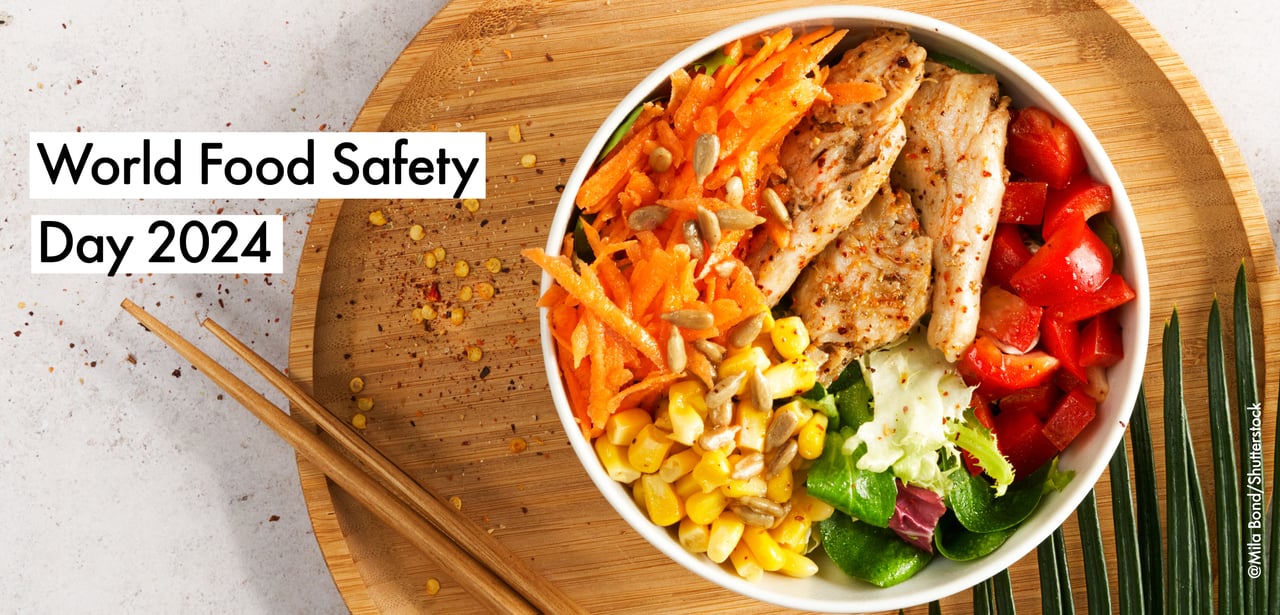
World Food Safety Day 2024
On the 7th of June every year, the world comes together to celebrate World Food Safety Day. This day is a vital occasion that underscores the importance of safe and nutritious food for all. This year as we commemorate this day, World Animal Protection is committed to highlighting the connection between food safety, animal welfare, and the environment. One of the biggest and most overlooked culprits is Factory farming. Also knows as intensive livestock production systems these prioritize speed and profit over animal welfare, food safety, and environmental sustainability. Here's how factory farming jeopardizes our health and the well-being of animals we share our planet with.
Factory Farming & Food Safety: A Dangerous Mix
Up to a quatre of antibiotics consumed globally are used in industrial livestock farming. This excessive use creates resistant bacteria, a significant threat to human health. According to the World Health Organization it is estimated that bacterial antimicrobial resistance (AMR) was directly responsible for 1.27 million global deaths in 2019, with projections suggesting an increase in this number over the years. In addition to deaths AMR has significant economic costs. The World Bank estimates that AMR could result in US$ 1 trillion additional healthcare costs by 2050, and US$ 1 trillion to US$ 3.4 trillion gross domestic product (GDP) losses per year by 2030.
These factory farms also create breeding grounds for foodborne pathogens. The cramped up and unsanitary conditions in the farms facilitate the spread of bacteria like E. coli, Salmonella, and Campylobacter.

Beyond Food Safety: The Animal Welfare Crisis
In factory farms, the focus on maximizing production over the well-being of animals has a devastating impact on animal welfare. The cramped spaces and cages that the animals are reared in make it impossible for these sentient animals to perform natural behaviours. In the case of chicken, they are unable to explore, dust bathe and perch. Overcrowding, lack of natural light and fast growth rates cause stress, lameness, and disease in most of these animals.
A Sustainable and Compassionate Future:
A safer, more equitable and humane food system is possible. Here's what we can do:
- Support sustainable practices: World Animal Protection advocates for supporting farming systems that prioritize animal welfare and sustainable practices. These farms use fewer antibiotics, leading to healthier animals and safer food.
- Demand Change: We urge governments to implement stricter regulations on antibiotic use in factory farms and prioritize food safety, animal welfare, and environmental protection.
Call to Action:
World Food Safety Day is a call for action. By advocating for change, we can create a better future for ourselves and future generations. Here's how you can make a difference:
- Choose food wisely: source meat from animals reared in responsible, humane, and sustainable farming practices.
- Explore diverse healthy diets, including alternative protein sources: Explore the diverse and delicious world of alternative protein cuisines.
Spread awareness: Share this information with friends and family. Raise your voice for change.